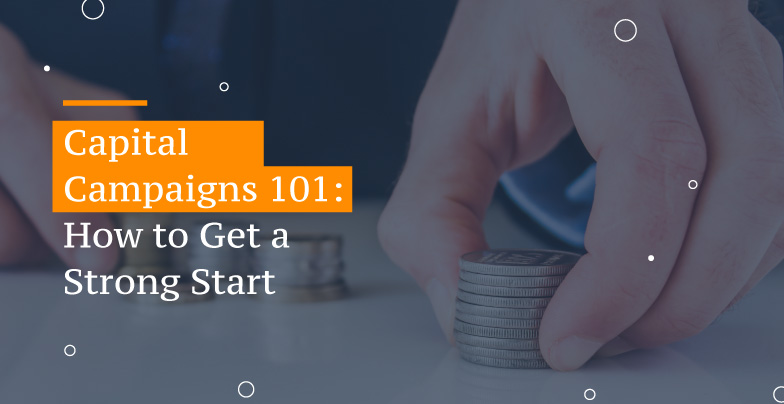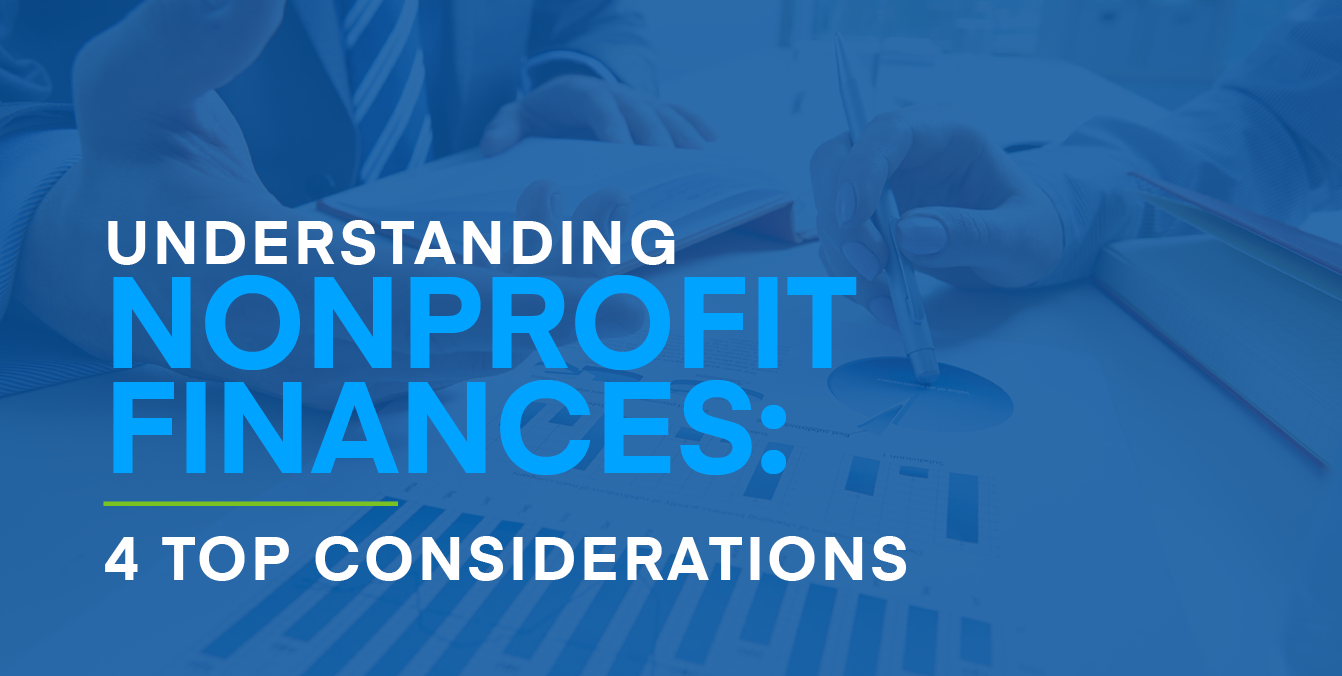
Capital Campaigns 101: How to Get a Strong Start
April 29, 2022
Let’s start by defining a “campaign.” A campaign is a fundraising effort over a defined period of time for a set purpose. Campaigns are great ways to get your staff, board, volunteers, and constituents to think big about your mission. They’re great rallying points that can engage more volunteers than you ever had before. They’re also great for community visibility.
If that’s the case, shouldn’t everything be a campaign? Ahhhhh…. No.
Think of it this way… Campaigns are the cake of fundraising. Great! You love cake, right? You feel great when you eat it, and when you have cake, everyone comes to your party. By that logic, you shouldn’t just have cake at every meal, you should have cake for every meal! Why not? Because you know that once in a while, cake is a great treat. But as a diet plan, it’s deadly. All cake all the time will probably kill you.
So it is with campaigns. Like flour and eggs in a cake (and a lot more ingredients, too), elements of campaigns apply to all sorts of fundraising (such as scales-of-gifts and top-down/inside-out gift solicitation). While you can be creating cakes and campaigns on an ongoing basis, serving them up publicly is best done once in a while.
Let’s step down from the cake-induced sugar high and bust some myths…
“Campaign” is just shorthand for “capital campaign.” Wrong! “Capital campaign” refers to a program to raise money for “capital” purposes — like land, building construction and major equipment. A “campaign” may include anything. Despite this, today when most people say “capital campaign” they mean for any purpose, not only capital purposes.
Campaigns are short. Only to the untrained eye. More on this below
Campaigns are how you start a fundraising program. Big mistake. Campaigns are the sum of fundraising efforts and techniques, not the start. Again, more below.
With the above in mind… how do you start?
- Have a top notch “regular” fundraising program.
Successful campaigns, especially capital campaigns, rely heavily on a base of established fundraising. Why? For those who are Biblically minded, you might remember that Jesus said, “Whoever can be trusted with small things can also be trusted with big things” (Luke 16:10). Whether you’re a Christian or not, it’s a great point. Campaigns tend to fund big projects. For big projects, you need your prospects to think big and make the biggest gift they can. It’s much easier for a donor to consider a big gift if they see your track record of handling their small gifts right.
Therefore, it’s a must to have an established, ongoing fundraising program before you start a campaign, whether that means you’re hosting regular fundraising events or regularly encouraging online donations.
Know your donors really well.
Not only do your donors need to know you, but in a successful campaign, you need to know them really well. Campaigns rely heavily on “major gifts,” AKA: the biggest gifts your organization typically seeks. Anyone who gives, especially those you hope will make significant contributions, is seeking to fulfill their own needs along with helping their cause. You’ll do much better if you can specifically address why they want to give. Is it because they love the community and see your organization as their means to express that love? Is it because they benefited from your service in some way? Do they like to be seen supporting great causes like yours? Starting to know your donor’s motivations is a great way to ensure a successful campaign.
Focus yourself on your mission.
Successful campaigns have defined their vision (what the ideal world would be like if their mission was not needed) and mission (how they can bring about the vision) well ahead of asking anyone for money. Your vision and mission are the bedrock of your campaign and lead to the most important campaign document: your case. Your case is the definition of why anyone should consider giving to your nonprofit. All fundraising efforts need a case — from annual fund programs to grants. In a campaign, a case transforms your effort from funding a list of “nice-to-have needs” to a coordinated, comprehensive rationale of why what you are funding is essential to serving your mission recipients (clients/students/patients, etc.) in the best way possible.
Focus others on your mission.
Mission is it, right? Campaigns are not for the money, they’re for the mission. The money is just a means to the mission. So, what are you doing to get the word out about your mission, and what are you doing to make your mission as successful as possible with what you have right now? Of course, you want to do better — that’s why you’re thinking of a campaign. But need doesn’t inspire gifts. Success does. As a donor, which would you rather hear? “Please help us because we are struggling and need your help to survive,” or “We did great last year and can help even more people with your donation today”? Yes, you may be struggling, and I am not suggesting that you hide that. Just don’t focus on it. Focus on all the great benefits you’re providing your mission recipient and how you can do more as a result of your fundraising now and campaign when you’re ready.
Have staff and volunteers well-practiced in asking.
One of the best reasons to have a well-established fundraising program before a campaign is that it gives your staff and volunteers practice for the “big show.” Consider that no musical goes straight to Broadway. They test out the actors and script “off-Broadway” or on multi-city road tours. Then once they have all the issues worked out, they make their Broadway debut! Your campaign is the “Broadway debut” of an off-Broadway and tour program that could be years in the making. Your volunteers are used to asking for money. Your staff is experienced in coordinating them. You have great background on your donors and well-established, trusting relationships. Only then are you ready.
Get campaign training.
Campaigns are not like regular fundraising. They are the sum of all of your regular fundraising and more. Back to Broadway… None of those people on stage just showed up one day and started acting. It took years of practice (as noted above) and ongoing training. It’s no different with campaign fundraising. And good news — there’s some great training out there.
For example, say you see a need to sharpen your major gift officers’ skills in order to prepare for a large-scale campaign. The Nonprofit.Courses roundup of major gift officers training resources presents a number of options for different training courses. Online resources like these can point you toward affordable and useful learning resources for everyone at your nonprofit.
Be ready for the long haul.
The worst thing that can happen to a nonprofit is a campaign’s failure. It shows that you did not make a strong case for why people should give. It may show weak leadership. It will make donors question why they supported you in the past, and whether or not they should in the future.
That’s why successful campaigns do not start when they are announced. They start months, even years before they are “official.” In fact, a campaign announcement often occurs when as much as 60% of the funds needed is already in hand. Professionals call that pre-announcement time the “silent phase.”
Why? To start, it’s psychological. Raising 100% of your needed funds is a very heavy lift. If the hard work is done (i.e. you’ve secured the biggest gifts) and there’s only 40% remaining, it seems much easier to attain. Yet behind that is more. What you’re doing in the silent phase is testing your case with the people who have the means to make it most successful. You’re lining up the big gifts, and with those, the donor’s endorsements and influence over others who can make gifts — big and small. It’s your chance to make it a community effort by starting at the top. And if you find there isn’t support, it stops any public embarrassment that can damage your nonprofit’s image for years to come.
It may be helpful to have a mantra to carry you through the months (or years!) that your campaign requires.Take this sentence from Donorly’s capital campaign guide to heart: “Remember, capital campaigns are marathons, not sprints.”
Starting a campaign is more than saying, “Let’s put on a show!” They’re major efforts that can produce major results. The advice in this article isn’t meant to dissuade you from starting a campaign. It’s meant to encourage a thoughtful decision that will leave you better prepared — and more successful in raising money and carrying out your mission — than you ever imagined.
Get The Latest Updates
Subscribe To Our Monthly Newsletter
No spam, notifications only about new products, updates.
Become a subscriber
Subscribe to our blog and get the latest updates straight to your inbox.


